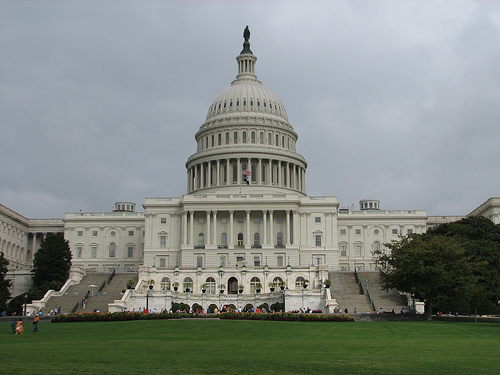How to fight:
Democratic Leader Harry Reid’s Letter to Bill Frist
March 15, 2005
Dear Majority Leader Frist:
During President Bush’s first four years in office, the Senate confirmed 204 judicial nominees and withheld its consent to only 10 nominations, a confirmation rate of over 95%. Last year the federal court vacancy rate reached its lowest level in 15 years. Nonetheless, in recent press reports you have threatened to use extraordinary parliamentary tactics allowing the Republican majority to rubberstamp the handful of nominees already rejected and all future Bush nominees.
On behalf of every Democratic Senator, I urge you and your colleagues to reconsider this course of action, which would remove one of the constitutional checks and balances that has served our country so well for over two centuries. I also want to describe the likely effect of this so-called "nuclear option" on the operation of the Senate.
The role of the Senate in the confirmation of presidential nominees is a central element of our democracy. The Framers of the Constitution created a system of checks and balances to limit the power of each branch of government, and in that way to protect the rights of the American people. The Senate’s review of judicial nominees is especially important because federal judges are the only government officials to receive lifetime appointments. These men and women will serve on the federal bench for decades, making far-reaching decisions that affect all Americans.
Every citizen has an enormous stake in this debate. Federal judges apply the laws that Congress passes to protect the environment, guard against discrimination and punish criminals. They give life to the First Amendment guarantee of free speech, the free exercise of religion and other vital constitutional rights. The Senate’s role in the confirmation of judges is as important as any of our duties.
The power to confirm judges includes the right to use well-established Senate rules to reject nominees. No one has seriously doubted that right in over 200 years, and Senators have exercised it in recent times. Of course that right should be exercised responsibly — while Republicans are concerned about the treatment of President Bush’s judicial nominees, Democrats were concerned about the Senate’s treatment of President Clinton’s judicial nominees, more than 60 of whom were denied a vote by the full Senate.
I am willing to work with you to improve the procedures by which the President seeks the advice of Senators with regard to nominations and the procedures by which the Senate considers whether to grant its consent, consistent with constitutional checks and balances. But to alter these procedures unilaterally would be an unprecedented abuse of power. The Senate should not become like the House of Representatives, where the majority manipulates the rules to accommodate its momentary needs.
Democrats in the Senate may be in the minority, but we represent millions of American citizens. The nuclear option would deny these Americans their rightful voice in the governance of the nation. Moreover, we will not always be in the minority. The nuclear option would trample on the rights of whichever group of Americans — Republicans or Democrats — happen to be represented by the Senate minority at any given time.
Listen to the words of two of our great Senate Leaders: Former Republican Leader Howard Baker wrote in 1993 that limiting the right to extended debate "would topple one of the pillars of American Democracy: the protection of minority rights from majority rule. The Senate is the only body in the federal government where these minority rights are fully and specifically protected." And half a century earlier, Democratic Leader and later President Lyndon Johnson said: "In this country, a majority may govern but it does not rule. The genius of our constitutional and representative government is the multitude of safeguards provided to protect minority interests."
The Senate conducts most of its business by cooperation and consent. The minority provides that consent with the expectation that the courtesies it extends to the majority will be met with respect for minority rights. And no Senate right is more fundamental than the right to debate. Should the majority choose to break the rules that give us that right, the majority should not expect to receive cooperation from the minority in the conduct of Senate business.
Of course Democrats would never block legislation vital to our troops or other national security interests, and we will help ensure that critical government services continue to function for the American people. Beyond that very limited scope, however, we will be reluctant to enter into any consent agreement that facilitates Senate activities, even on routine matters. Just this year we passed the class action and bankruptcy bills under procedures negotiated in good faith between the majority and the minority. We would decline to provide such cooperation in the future if you implement the nuclear option.
There is a better way. Working together, I believe we can discharge the Senate’s constitutional duty to consider judicial nominees in a fair and sensible manner. If you abandon the nuclear option, I can assure you that Senate Democrats will cooperate with you to consider legislation and nominations. We will exercise our procedural rights in a responsible fashion, cognizant of the President’s prerogatives. We will do our part to preserve the bipartisanship that defines the Senate and that serves the nation so well.
Sincerely,
HARRY REID Democratic Leader

